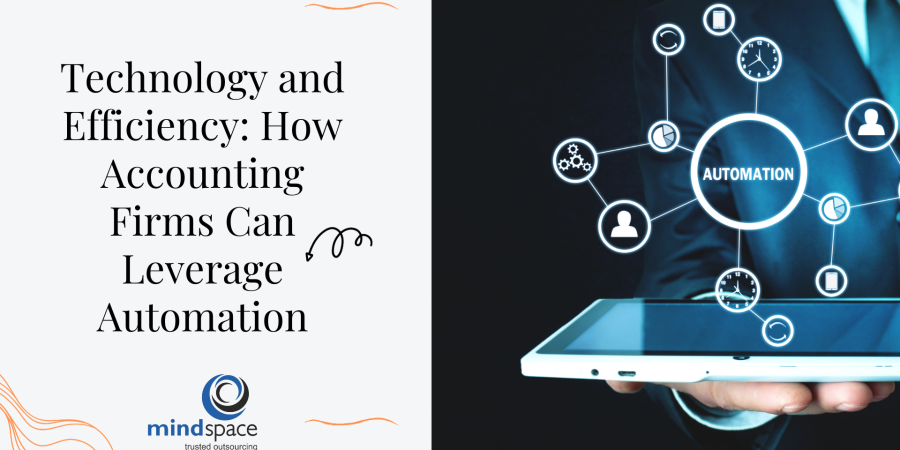Technology and Efficiency: How Accounting Firms Can Leverage Automation
In the ever-evolving landscape of business, accounting firms are increasingly recognizing the pivotal role that technology plays in enhancing efficiency and driving cost savings. The digital transformation wave has brought forth a plethora of tools and solutions that can revolutionize traditional accounting processes, and automation stands out as a game-changer.
The Current Accounting Landscape: Challenges and Opportunities
Traditional accounting practices are often characterized by manual data entry, time-consuming reconciliation processes, and a heavy reliance on paper-based documentation. This not only opens the door to human errors but also consumes valuable resources in terms of time and manpower.
The challenges faced by accounting firms include the need for real-time data, increased compliance requirements, and the demand for more strategic financial insights. In this context, embracing technology, particularly automation, emerges as the key to addressing these challenges while unlocking opportunities for growth and innovation.
The Rise of Automation in Accounting
Automation in accounting involves the use of technology to perform repetitive, rule-based tasks, allowing accountants and finance professionals to focus on more strategic and value-added activities. This shift is crucial in the context of cost savings, as it directly impacts productivity and resource allocation.
1. Streamlining Data Entry and Reconciliation Processes:
Automation tools can significantly reduce the time spent on manual data entry and reconciliation. Software solutions, such as optical character recognition (OCR) technology, can extract relevant information from invoices and receipts, eliminating the need for tedious manual input. This not only minimizes the risk of errors but also frees up valuable time for accountants to focus on more analytical tasks.
2. Enhanced Compliance and Accuracy:
The regulatory landscape for accounting is constantly evolving. Automation ensures that financial processes are in compliance with the latest regulations, reducing the risk of non-compliance penalties. Additionally, the accuracy of financial data is significantly improved, leading to more reliable financial reporting.
3. Efficient Workflow Management:
Automation tools enable the creation of streamlined and efficient workflows. Tasks such as approvals, authorizations, and notifications can be automated, reducing bottlenecks and delays in the accounting processes. This not only accelerates the pace of work but also enhances overall operational efficiency.
Cost Savings through Automation
The adoption of automation in accounting translates into tangible cost savings for accounting firms. Here’s how:
1. Reduced Labor Costs:
Automating repetitive tasks means less reliance on manual labor. While automation tools handle routine processes, accountants can focus on higher-value tasks that require critical thinking and analysis. This redistribution of responsibilities not only optimizes human resources but also allows firms to operate with leaner teams.
2. Minimized Error-Related Costs:
Manual data entry is prone to errors, and correcting these errors can be a time-consuming and costly process. Automation significantly reduces the risk of errors, leading to fewer instances of rework and associated costs. The enhanced accuracy of financial data also contributes to improved decision-making.
3. Faster Turnaround Times:
Time is money in the world of accounting. Automation accelerates the pace of financial processes, from data entry to reconciliation and reporting. This faster turnaround time not only enhances client satisfaction but also allows accounting firms to take on a higher volume of work without proportionally increasing costs.
4. Resource Allocation Efficiency:
Automation enables accounting firms to allocate resources more efficiently. By automating routine tasks, firms can strategically deploy their workforce to areas that require human expertise, such as financial analysis, strategic planning, and client engagement. This optimal use of resources contributes to overall cost-effectiveness.
Embracing a Digital Future: Key Considerations for Accounting Firms
While the benefits of automation in accounting are clear, successful implementation requires careful consideration of various factors:
1. Choose the Right Automation Tools:
Not all automation tools are created equal. Accounting firms should invest in solutions that align with their specific needs and workflows. Whether it’s automating invoice processing, bank reconciliations, or financial reporting, the chosen tools should integrate seamlessly with existing systems.
2. Prioritize Data Security:
The nature of financial data requires stringent security measures. Accounting firms must prioritize the selection of automation tools that adhere to industry standards for data security. Access restrictions, encryption techniques, and regular security audits are all part of this.
3. Provide Training and Change Management:
The successful integration of automation into accounting processes requires a workforce that is equipped with the necessary skills. Providing training programs and fostering a culture of continuous learning will help accountants adapt to the changing technological landscape.
4. Monitor and Evaluate Performance:
Post-implementation, it’s essential to continuously monitor the performance of automation tools. Regular evaluations will help identify areas for improvement, ensure ongoing compliance with regulations, and optimize the use of these tools for maximum efficiency.
Conclusion: A Paradigm Shift for Accounting Firms
Automation is not just a technological upgrade; it represents a paradigm shift in how accounting firms operate. The integration of automation tools is a strategic move that goes beyond mere cost savings—it’s about staying competitive in a dynamic business environment.
As accounting firms leverage automation to streamline processes, enhance accuracy, and allocate resources more effectively, they position themselves as agile and forward-thinking partners for their clients. The cost savings realized through automation become a catalyst for growth, enabling firms to invest in innovation, talent development, and client-focused initiatives.
In the digital age, where change is constant, accounting firms that embrace automation not only survive but thrive, setting the stage for a future where technology and efficiency converge to redefine the very essence of accounting.


